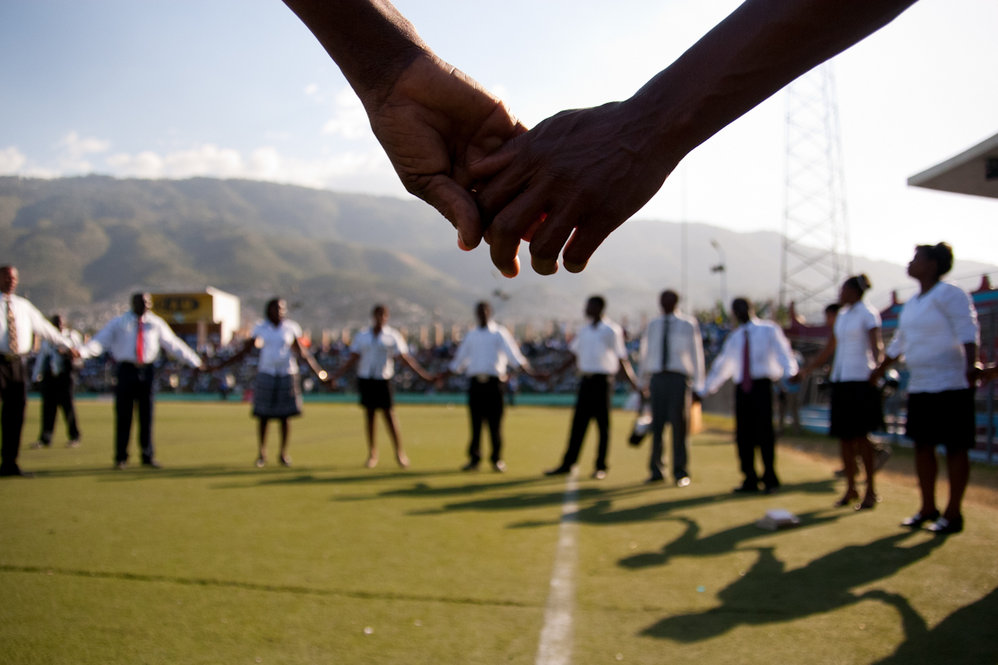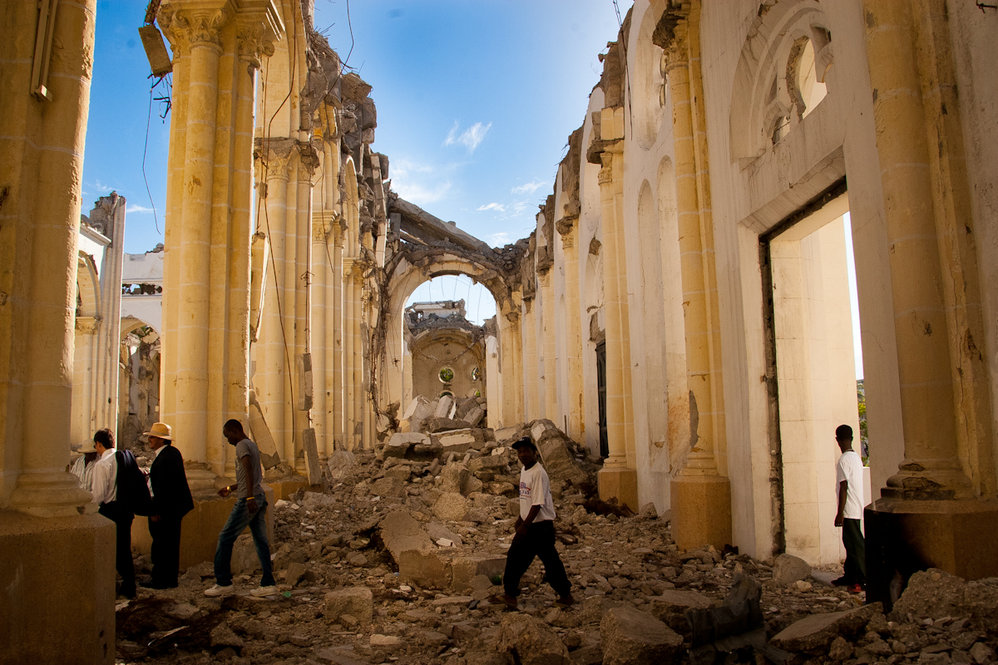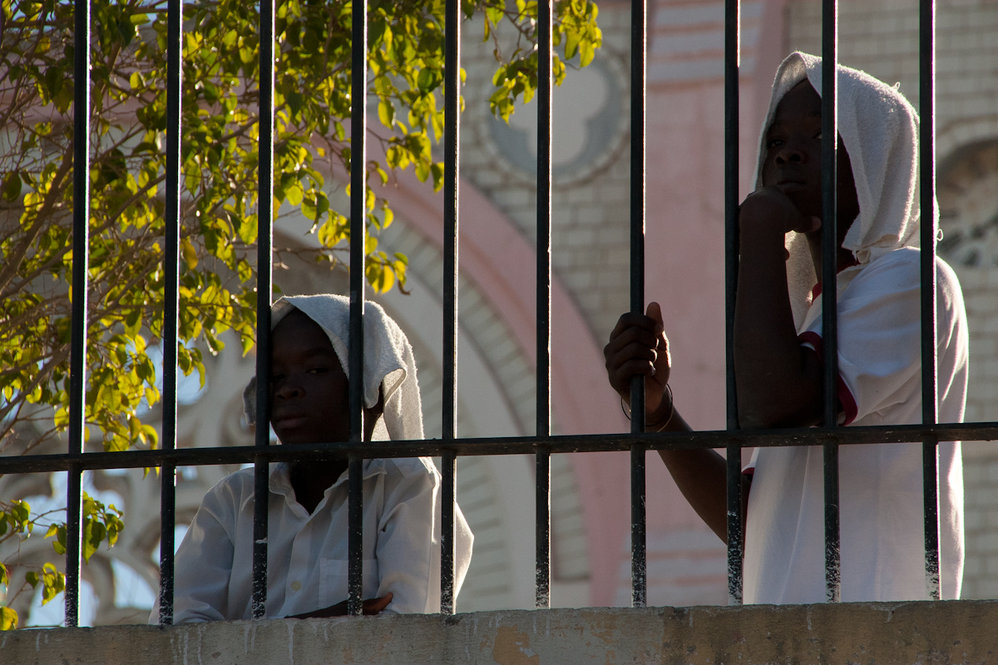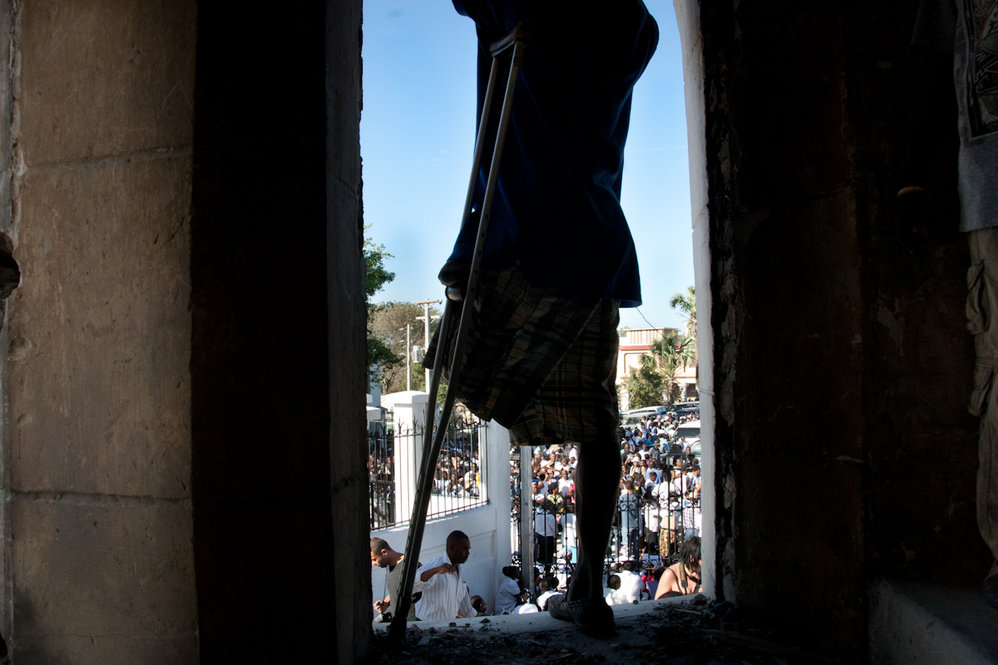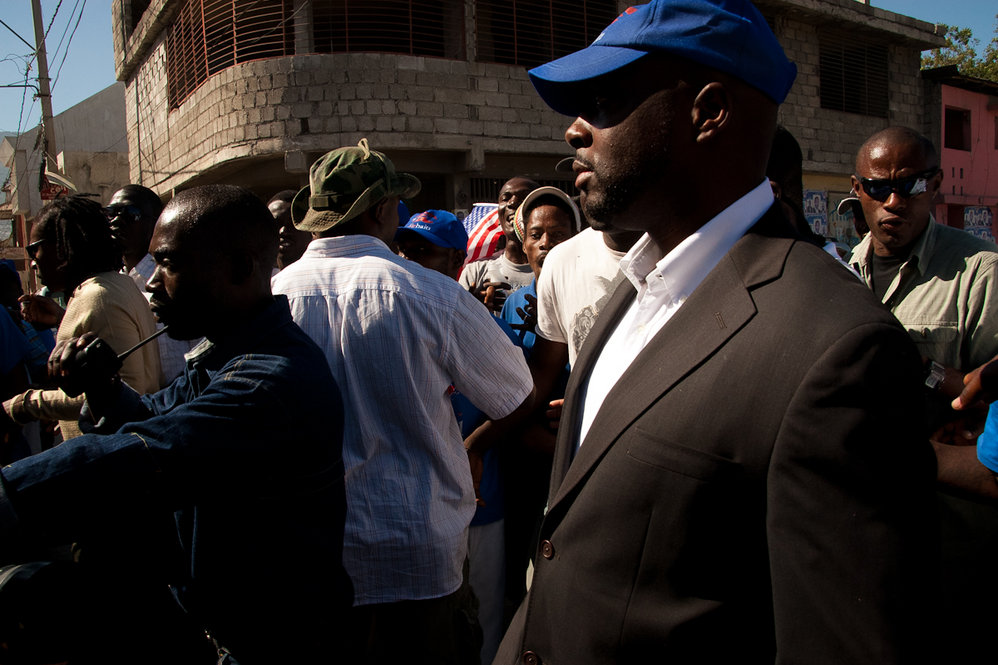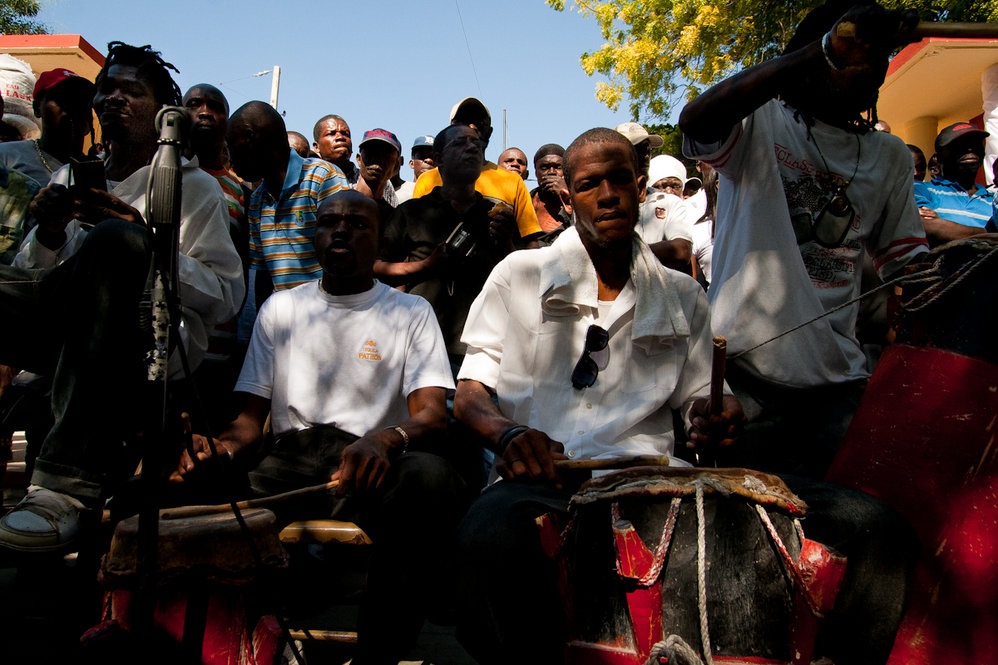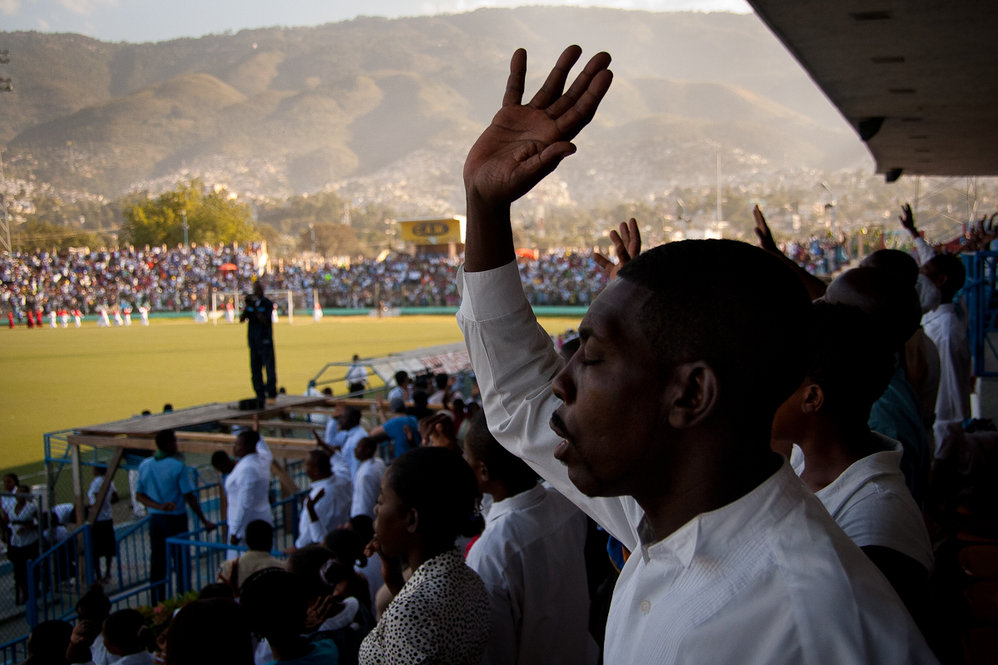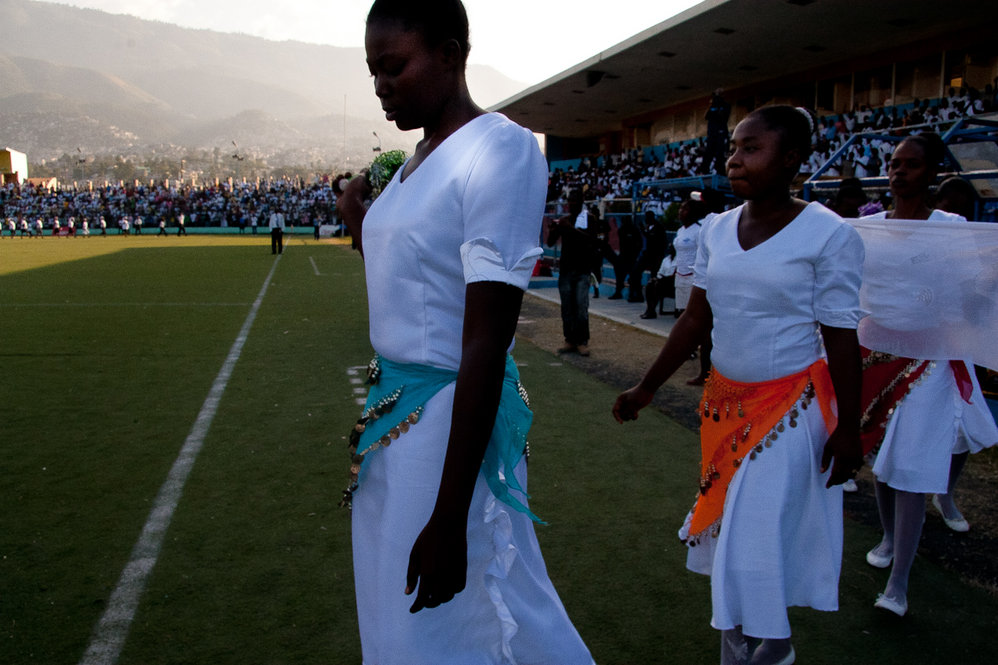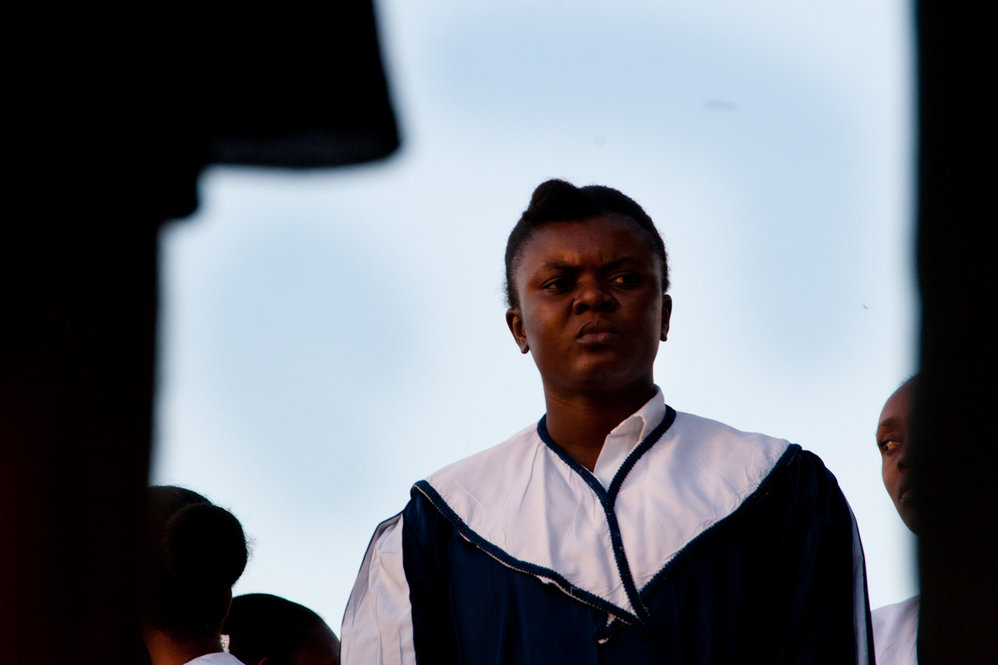by Evelyn Margron with Jacob Kushner | January 12, 2011
A year after the devastating 7.0 earthquake that shook Haiti, Evelyn Margron recalls her miraculous rescue from a collapsed office building.
It was January 12, 2010. Around four in the afternoon my boss in
Managua, Nicaragua, Mariecke, and I were talking together on Skype. At 4:30, my grandson Matias arrived from school. He always comes to my office and then we go to see my partner Guy before we head home. Mariecke was waving at Matias on the computer screen and Matias was amused. He waved back before sitting across from me to work on a drawing.
The telephone rang. Guy was calling me to remind me that I was late. I had barely placed the telephone back in its cradle when the walls began to shake. In Spanish, I told Mariecke “Terremoto!” In the same breath I yelled to Matias, “Under the table, quickly! Are you alright?”
Later, I realized I had lost consciousness after crawling under the desk.
The earth shook again. As I came to I inspected myself. I was lying on my right side, my right arm pinned tightly to the ground by a wooden beam. I touched the ragged, viscous remains of my right arm with my left arm. I removed my Skype headset, my glasses, my necklace. And the earth trembled again.
“Abuela, are we going to die?”
Matias took me by surprise. “Maybe,” I replied, “but I will do everything in my power to prevent that.”
Click HERE to read Margron’s full story at World Pulse. Also watch her VIDEO interview.
